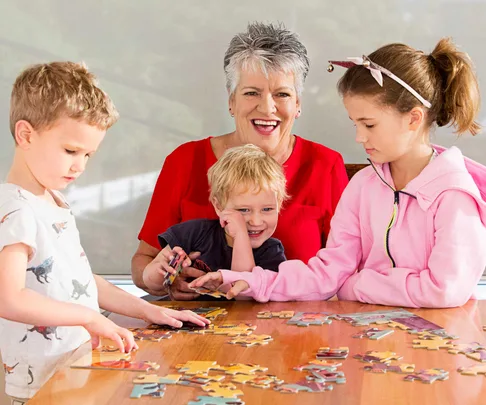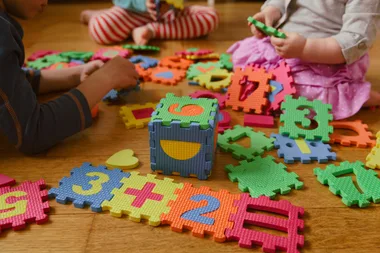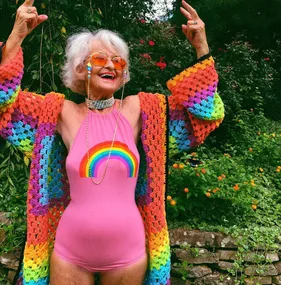If someone had told her that at 64 she’d be spending her days going to playgroups and running around after toddlers, Jane Stevens would have laughed at them.
She had spent her working life in the corporate world of banking, but it wasn’t until she was made redundant a year ago that she decided to make a career change.
Even then, nannying was far from her mind and it took prompting from her daughter before she looked into it.
“When I enquired at a nanny school, I think they were a bit surprised that someone of my age was considering becoming a nanny,” she says.
But in fact, Jane is far from alone. While many women in their mid-50s are waving goodbye as their youngest children leave the nest, or settling down for a quieter life, there are a brave few that are successfully navigating tantrums, toddlers and kindergarten drop-offs.
They are part of a new, growing profession: the Granny Nannies.
In 2017 it is becoming increasingly common for people to make the career change to nanny in their golden years, either by formally looking after their grandchildren so their own children can return to work, or opting to become an educator for other families, as a way to indulge their joy of caring for children while also earning an income.
“I think the older generation want to use their life skills in a meaningful way and take childcare back to the good old days based on love, relationships and using the community as the classroom; not structured learning between four walls,” says PORSE childcare General Manager Kerry Henderson, who agrees that early childhood education has become an attractive option for those over the age of 50.
“I think also, parents have always been open to more mature caregivers because they know they have life experience and maturity and have most likely already raised children, therefore having empathy for what parents are experiencing.
“They can offer sage advice and support, and can provide a safe but loving environment, like a grandparent would offer,” Kerry says.
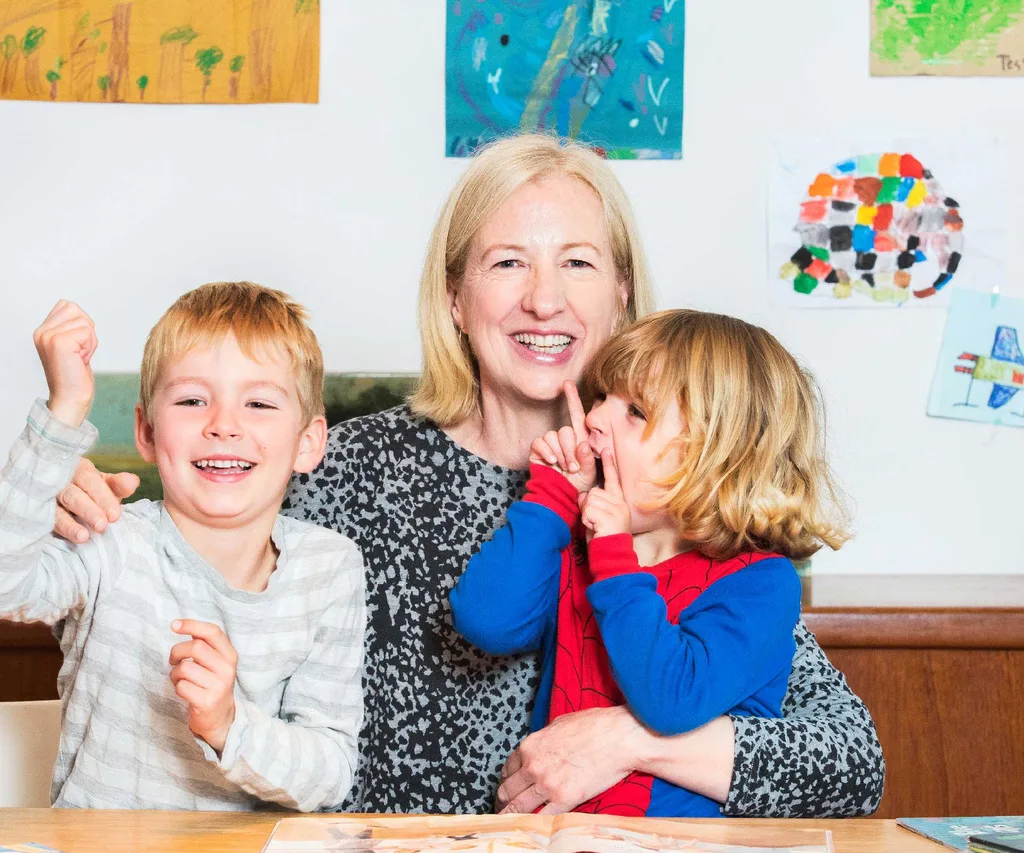
Brenda Manchester looks after Henry (six) and Tessa (three). She says she feels privileged to help parents with young children.
Brenda
For 56-year-old Brenda Manchester, the struggle of going through menopause and working full-time in her high-pressured office job was overwhelming, and nannying seemed like a refreshing change of pace.
“I thought I would do it to give myself a break from my office job for 12 months or so and I just loved it. People every now and then say to me, ‘When are you going to get a serious job?’ and I reply with, ‘Never!’ I’m so happy and it really suits my lifestyle and my personality, so I’ll never change now,” she says.
Brenda had tried nannying part-time while she completed her nursing qualification and again in Florence where she worked as an au pair in her early 20s.
“Nannying is what I have always loved doing, and I’ve always come back to it, so becoming a mature educator was really about letting go of the expectations that I should be doing more with my life,” Brenda says of her decision to return to nannying seven years ago.
“I’m an outdoor, active person and being with little children you’re out exploring the world together. Seeing the world through children’s eyes keeps you young. I find it quite uplifting.”
Brenda, who has no children of her own, says she feels privileged to be able to help parents with young children.
“Whether it’s their first baby or not, it’s a very special time in their lives. I love stepping in to support them. I really feel like I am making a difference.”
She says it’s nice to be appreciated for being mature, now that parents are increasingly looking for older nannies to care for their little ones.
“I think parents are starting to feel much more comfortable with a mature educator as a nanny. Childcare is difficult and I think us older nannies have the maturity and the calmness to let go of everything else and focus on the children.
“When I was younger, the parents of the children I cared for seemed a lot more like my boss. Now I think because I am older and I have more life experience, parents better respect my decision-making and trust my judgement with the kids. They don’t need to be giving me a lot of direction, which saves them a lot of stress,” she says.
“I have greater patience now and when I’m with the kids, I’m completely absorbed in the moment with them. And kids are very absorbing – you kind of have to be. But it’s so much easier to do this now than it ever was before.”
The energetic nanny says she can understand why many older women are turning to nannying as their career before retirement because of the flexibility and freedom it gives you.
“It’s a complete change in lifestyle, and caring for children makes you feel so useful. I’m so happy knowing that I keep the fire burning at home while parents are out working to give their kids what they need.”
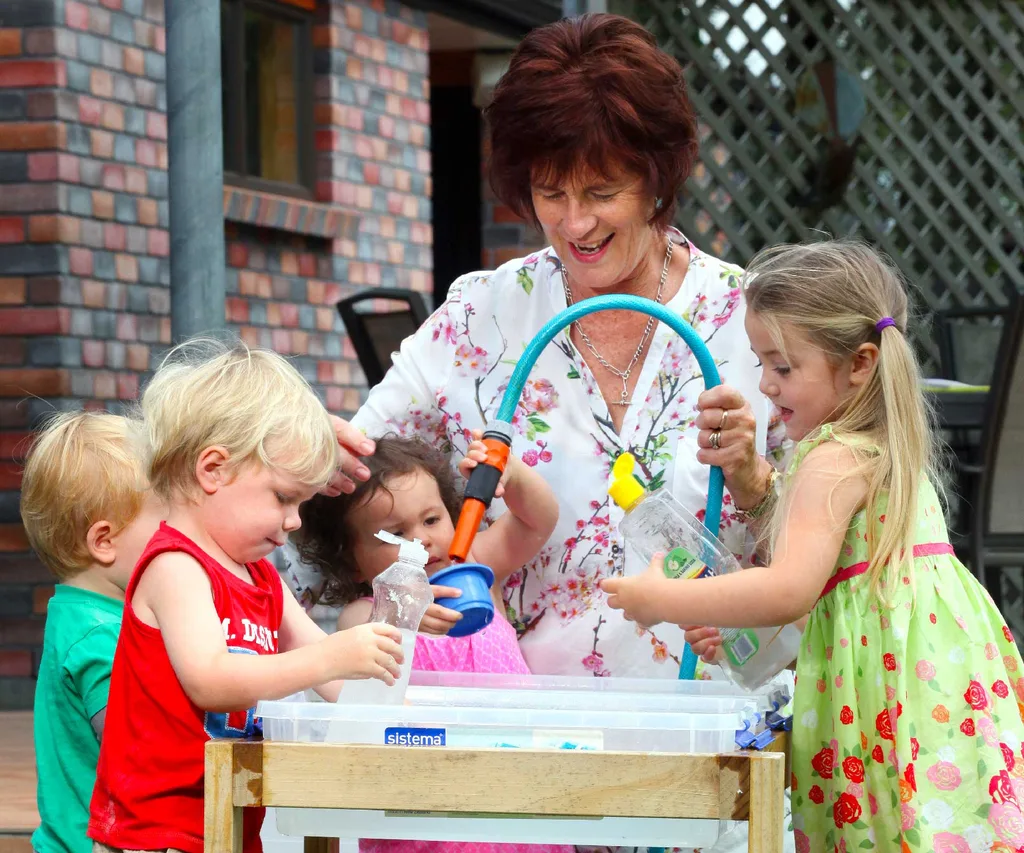
Sandy Herbert enjoys water play with her charges (from left), Krydan (three), Lachlan (20 months), Isabelle (22 months) and Avalee (four).
Sandy
“I think I am wiser, calmer and more confident now than I ever would have been doing this job in my 20s,” Sandy Herbert says, as her one-year-old granddaughter squeals happily in the background.
Since leaving her busy full-time job as a dental assistant in a children’s clinic in Taranaki to care for her granddaughter, Sandy has never looked back.
“I had always wanted to work with children, but I had never completed a diploma in childcare. I always had a yearning for going back to looking after children in my own home, especially once my granddaughter was born,” she says.
When her daughter, who was struggling with wanting to return to work full-time but also keep her child out of daycare, came back to New Zealand from overseas, it was the push Sandy needed to make her career change. The 54-year-old now runs a childcare centre from within her own home, with four energetic youngsters to look after.
“A lot of people think I am mad for choosing to run around after young children at this stage in my life. ‘Why would you want to do something like that?’ they say. But this job suits me.
“The kids always want to cuddle. They bring me so much enjoyment and they’re definitely entertaining. They are always doing something different or making me laugh. And I certainly enjoy being at home and being my own boss,” she says.
Sandy says if she were a mother looking for someone to care for her child, she too would probably opt for an older nanny.
“Someone older, I think, has a greater sense of confidence in their abilities and their instincts when it comes to childcare. We carry with us this real-life experience that a lot of younger nannies have not yet had.”
She suggests that the growing popularity of granny nannies might be due to their family values and ability to offer stability.
After many years caring for her own children, she says,“I have learnt how to respond to and manage toddlers with their emotions and challenging behaviours. I know how to listen and communicate with them. Of course there are so many things that you think you know but you really don’t,” she laughs.
“There’s always a whole lot more to learn and there’s a whole lot of different ways of doing things since I had children.”
As a PORSE nanny she receives support and guidance, as well as a community of other nannies to go to for advice.
Caring for children has brought her a happiness and fulfilment she hasn’t known in any other job.
“What I really love about this job is the unconditional love and the affection I receive from these children. You are there to guide them and protect them when their parents aren’t able to be around,” she says.
“And most of all it’s taught me to be present in the moment and not stress about the small things in life.”
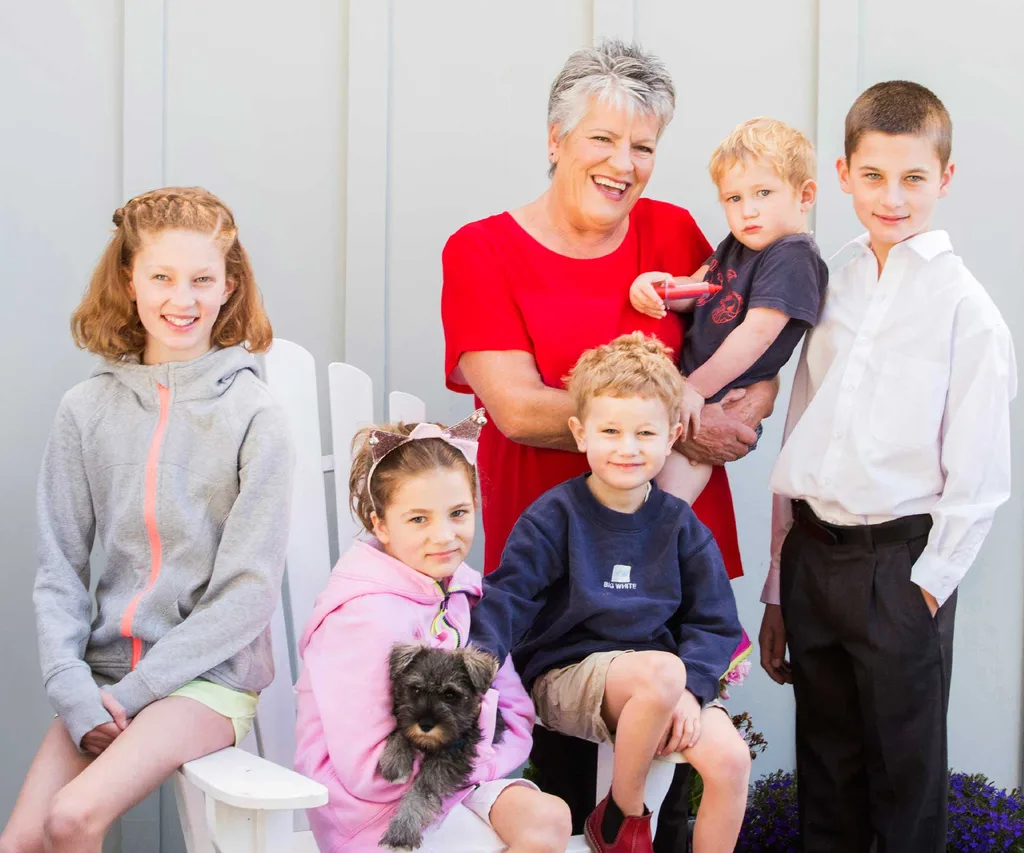
Jane Stevens with Tate, Wyatt and Tilly. She says patience is her greatest asset. “You learn not to rush and stress about things.”
Jane
After spending most of her working life employed in a corporate environment, Jane Stevens says childcare was a far cry from what she had imagined herself doing.
“I had actually just been made redundant. I had worked in a bank for many years when they offered me either an alternative job in the company or redundancy,” she says.
“This was right before my granddaughter was to be born so I thought, ‘I think I’ll take redundancy.’ That way I could be around for my first grandchild. But [professional] childcare had never crossed my mind before. I wasn’t opposed to it. So I looked into it and I’ve been a nanny ever since.”
Nowadays Jane spends her days making sure the children are fed, doing school drop-offs and attending preschool playgroups.
“Families are so busy nowadays and we tend to do the little things,” she says of her role as an in-home educator.
“The pleases and thank-yous, and making sure they clean their teeth. The little things that sometimes get missed when parents are busy and stressed. And that’s quite important, to help parents out and just keep things ticking over.”
She says that because she has raised a family of her own, she can understand what a child needs and wants, and what a parent wants for their child, more easily than someone who hasn’t spent a lifetime around children might be able to.
“I think, being older, we realise the importance of being more than just the child’s friend. You need to teach them guidelines, manners and rules. Because this is real life and kids need to learn them.”
Jane finds older nannies trust their instinct a lot more when it comes to dealing with a crisis.
“We tend to deal with the situation first and then do what we’ve got to do about the parents. There was one time when one of the girls I look after had a fall at school and hurt her foot, so I went to the school and picked her up.
I took her to the hospital and only once we were there did I ring the parents to let them know. Whereas someone younger might have panicked a little or needed reassurance from the parents before heading to the hospital.”
The nanny-of-five says it boils down to having confidence in your experience and your knowledge about what children need.
Like Brenda and Sandy, Jane also identifies patience as her greatest asset.
“I think I’m a lot more tolerant now than I was in earlier life. When I was younger I was always in a hurry and as I’ve grown older, and even more so as I’ve been in this job, I’ve learnt that with children patience is key.”
While that is something younger nannies learn on the job, older nannies are more likely to already possess these qualities from bringing up their own children.
“You learn not to rush and stress about things – such as when you’re just going to walk out, the kids are all dressed, everybody looks lovely… and the baby poos itself. You might have to be somewhere in 10 minutes, but the baby needs changing,” she laughs.
While other people might have been surprised by her sudden career change, Jane says she can’t imagine a more perfect job to ease her into her retirement years.
“Looking after children is such a joyful, fulfilling career. They are always doing something different or bringing something new to my life. I think for me and for many other women, becoming a nanny brings you happiness you didn’t know you needed.”
